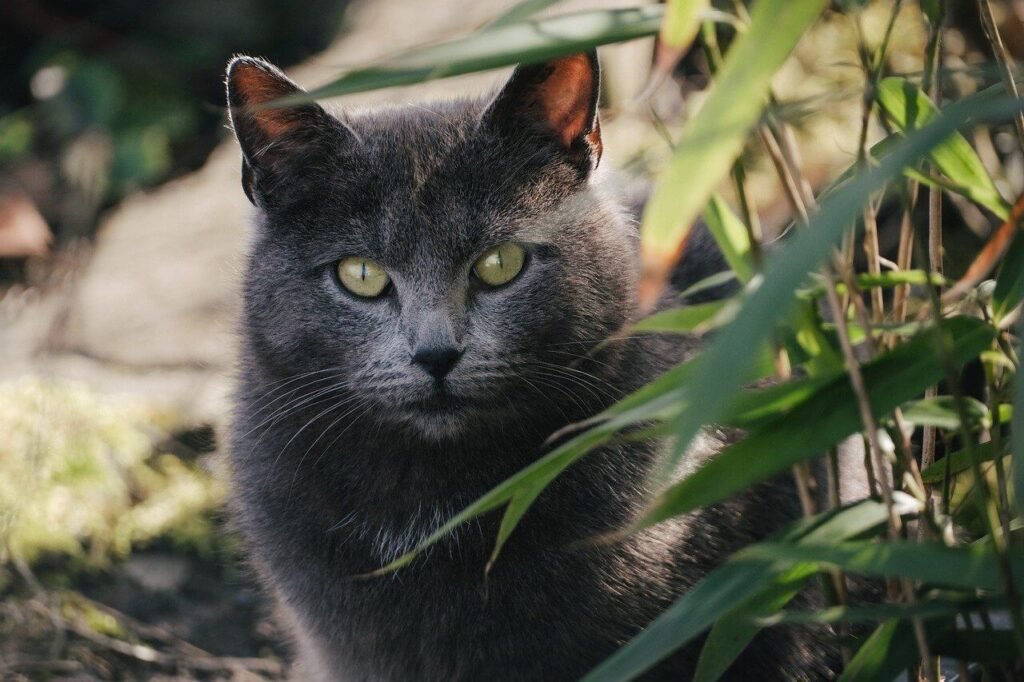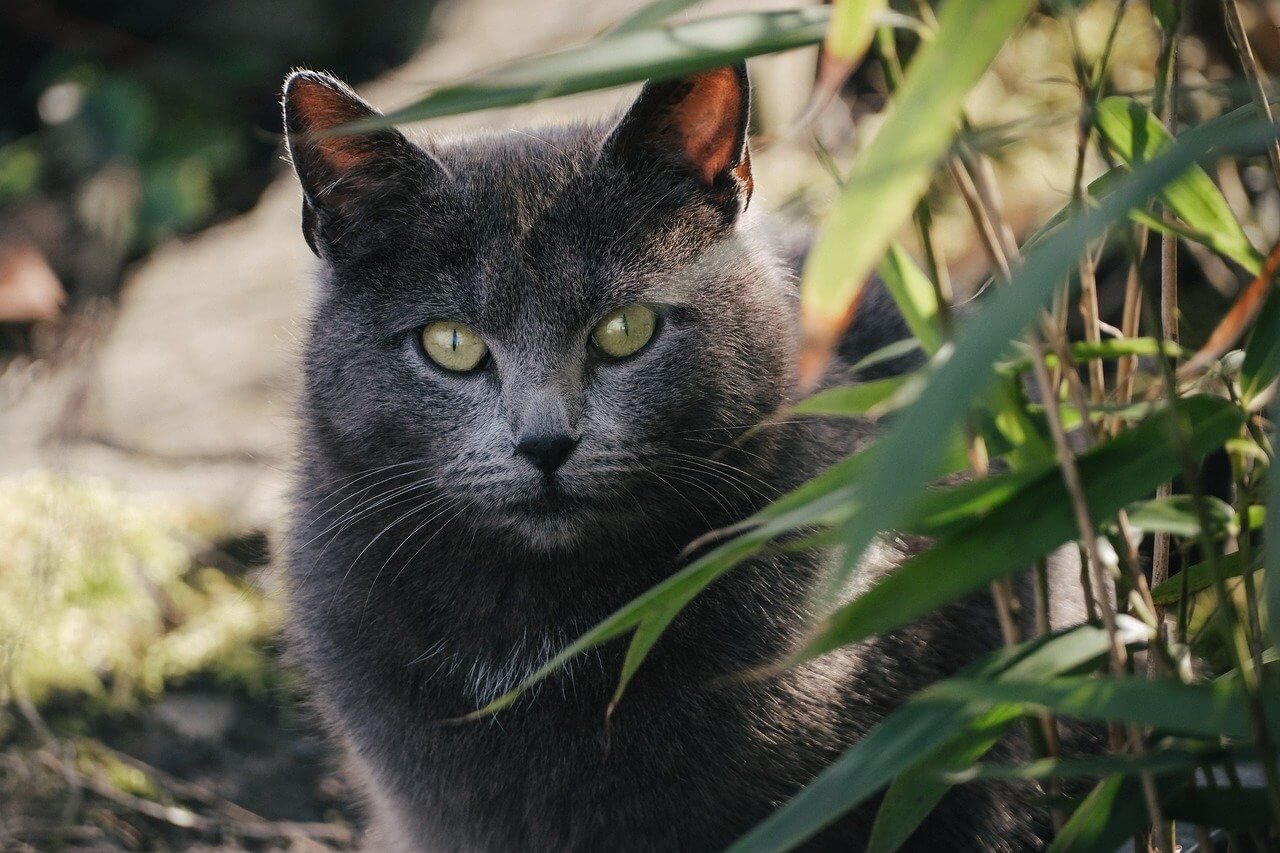Why Does My Cat Bite My Hair? Unraveling the Mystery
Cats are fascinating creatures, full of quirks and behaviors that often leave us scratching our heads in wonder. One such behavior is when your feline friend decides to nibble on your hair. While it might seem strange or even amusing at first, this behavior can have deeper meanings rooted in your cat’s instincts, emotions, and even their bond with you. In this blog post, we’ll explore why cats bite hair, what it signifies, and how you can respond to this unique behavior. Whether you’re a seasoned cat owner or new to the world of feline companionship, understanding this quirky habit will help you strengthen your relationship with your furry friend.
What Could Be Behind the Behavior? Common Reasons Cats Bite Hair
If you’ve ever wondered why your cat seems obsessed with your hair, you’re not alone. This behavior can stem from a variety of reasons, each tied to your cat’s natural instincts and personality. Here’s a breakdown of some common explanations:
Grooming Instincts:
Cats are meticulous groomers, and they often extend this behavior to those they care about. By licking or nibbling your hair, your cat may be trying to “groom” you as a sign of affection.Comfort and Security:
Your hair might remind your cat of their mother’s fur, especially if they were very young when separated from her. Nibbling on your hair could provide them with a sense of comfort and nostalgia.Playful Curiosity:
Cats are naturally curious creatures, and your hair might simply be an intriguing texture for them to explore. Its movement and softness can spark their playful side.Attention-Seeking Behavior:
If your cat feels neglected or wants your attention, biting your hair can be their way of saying, “Hey, notice me!”Stress or Anxiety Relief:
Some cats resort to unusual behaviors like hair-biting when they feel stressed or anxious. It acts as a self-soothing mechanism similar to kneading.
Understanding these potential reasons can help you address the behavior effectively while ensuring your cat feels safe and loved. Remember, every cat is unique, so observing their overall demeanor is key to identifying the root cause.
Is Hair Biting Harmful? What You Need to Know
While having your cat nibble on your hair might seem harmless—or even endearing—there are certain considerations to keep in mind. Let’s take a closer look at whether this behavior poses any risks and how you can manage it:
Potential Damage to Hair:
Repeated pulling or chewing could lead to split ends or breakage, particularly if your cat has sharp teeth or gets overly enthusiastic.Hygiene Concerns:
Cats’ mouths contain bacteria, which means there’s a small risk of transferring germs to your scalp or skin during hair-biting sessions.Behavioral Red Flags:
Excessive hair biting might indicate underlying issues such as boredom, loneliness, or anxiety that need addressing.Physical Discomfort for You:
Depending on how aggressively your cat bites, the sensation could range from mildly annoying to genuinely uncomfortable or painful.Impact on Your Bond:
While occasional nibbles might strengthen your connection, frequent hair biting could strain your patience and affect your relationship over time.
By being aware of these factors, you can decide whether intervention is necessary and take steps to redirect your cat’s behavior in a positive way. After all, maintaining harmony between you and your pet is essential for a happy household.
Check this guide 👉 Why Does a Cat Keep Coming to My House? Best 7 Tips!
Check this guide 👉 Why Is My Cat Dragging Their Butt? Best 7 Expert Tips!
Check this guide 👉 Why Do Cats Lick Their Lips? Best 7 Expert Care Tips!

Reasons Cats Bite Hair | Ways to Address the Behavior |
|---|---|
Grooming instincts | Provide grooming alternatives like soft brushes |
Comfort and security | Offer cozy spaces or blankets resembling maternal warmth |
Playful curiosity | Engage your cat with interactive toys |
Attention-seeking tendencies | Spend quality one-on-one time playing or cuddling |
Stress or anxiety relief | Identify stressors and create a calming environment |
How Can You Redirect Your Cat’s Behavior? Practical Tips
If your cat’s hair-biting habit becomes too frequent or problematic, don’t worry—there are several strategies you can try to gently redirect their focus. These methods aim to satisfy your cat’s needs while preserving your peace of mind:
Provide Alternative Outlets for Grooming:
Offer soft plush toys or grooming mitts that mimic the texture of hair. This gives your cat something else to nibble on safely.Increase Interactive Playtime:
Use wand toys, laser pointers, or feather teasers to engage your cat physically and mentally. A tired cat is less likely to indulge in unwanted behaviors.Create a Calming Environment:
Ensure your home has plenty of hiding spots, cozy beds, and vertical spaces where your cat can retreat and feel secure.Reward Positive Behavior:
Praise or treat your cat whenever they exhibit calm or desirable actions instead of hair biting. Positive reinforcement works wonders.Consult a Veterinarian:
If the behavior persists despite your efforts, seek professional advice. There may be underlying health issues contributing to the problem.
With patience and consistency, these techniques can help curb your cat’s hair-biting tendencies while fostering a stronger bond between you two.
When Should You Be Concerned? Signs to Watch For
While occasional hair biting is usually harmless, certain signs may indicate that your cat’s behavior requires more attention. Keep an eye out for these red flags:
Aggressive Biting:
If your cat starts biting hard enough to cause pain or injury, it’s important to intervene immediately.Obsessive Behavior:
Constant hair chewing or fixation could signal obsessive-compulsive tendencies or anxiety.Changes in Personality:
Sudden shifts in mood, appetite, or activity levels alongside hair biting warrant further investigation.Skin Irritation or Hair Loss:
Check your scalp for signs of irritation, redness, or damage caused by repeated biting.Other Unusual Behaviors:
Look for accompanying symptoms like excessive vocalization, hiding, or changes in litter box habits.
Addressing these warning signs early can prevent more serious problems down the line. Always consult a veterinarian if you’re unsure about your cat’s behavior or its implications.
Understanding Your Cat’s Personality Through Hair Biting
Every cat has a unique personality, and their hair-biting behavior can reveal fascinating insights into their character. By observing how and when your cat engages in this habit, you can gain a better understanding of what makes them tick. Here are some personality traits that might be linked to hair biting:
Affectionate Nature:
If your cat nibbles your hair gently during cuddle sessions, it could indicate they’re expressing love and trust.Curious Explorer:
Cats who bite hair while investigating new scents or textures often have a curious and adventurous spirit.Needy Companion:
Frequent hair biting might suggest your cat craves attention and enjoys being the center of your world.Anxious Soul:
Hair biting as a self-soothing mechanism can point to an anxious or sensitive personality.Playful Trickster:
If the behavior is accompanied by playful pounces, your cat likely sees your hair as part of a fun game.
By recognizing these traits, you can tailor your interactions to suit your cat’s individual needs. Ultimately, understanding their personality helps strengthen the bond you share and ensures a happier, healthier relationship.
Creating a Hair-Biting-Free Zone
If your cat’s hair-biting habit becomes too persistent, creating boundaries can help manage the behavior effectively. Establishing a “hair-biting-free zone” involves setting clear limits while providing alternatives to redirect their focus. Consider the following strategies:
Designate Specific Cuddle Times:
Allow your cat to snuggle only during designated times when you’re prepared to monitor their behavior.Use Distraction Techniques:
Keep a favorite toy nearby to divert their attention away from your hair.Wear Protective Hairstyles:
Braiding your hair or wearing it up can make it less accessible and appealing to your cat.Spray Natural Deterrents:
Use pet-safe sprays with scents cats dislike, such as citrus or lavender, on your hair accessories or bedding.Teach Gentle Boundaries:
Gently remove your cat and say “no” firmly but calmly if they attempt to bite your hair.
With consistency and patience, these techniques can help reduce hair biting while maintaining a positive dynamic with your cat. Remember, training takes time, so celebrate small victories along the way.
Strengthening Your Bond Beyond Hair Biting
Redirecting your cat’s hair-biting behavior is also an opportunity to strengthen your bond through alternative activities. By engaging in shared experiences that fulfill their physical and emotional needs, you can build a deeper connection without relying on habits like hair nibbling. Here are some ideas to try:
Interactive Play Sessions:
Dedicate 15–20 minutes daily to interactive play using toys that mimic prey, like feather wands or mice.Grooming Together:
Brush your cat regularly to satisfy their grooming instincts while bonding over this calming ritual.Training Exercises:
Teach your cat simple tricks using treats as rewards, which boosts mental stimulation and trust.Cuddling Without Hair Access:
Hold your cat close while reading or watching TV, ensuring your hair is tied back or out of reach.Exploring New Environments:
Introduce safe outdoor enclosures or indoor enrichment zones to stimulate their curiosity and energy.
These activities not only redirect your cat’s focus but also enhance the quality of your relationship. Over time, you’ll find that your cat seeks connection through positive interactions rather than hair biting, leading to a more harmonious household.
Frequently Asked Questions About Cats Biting Hair
Is it normal for my cat to bite my hair?
Yes, it’s relatively common and often stems from grooming instincts, curiosity, or affection.
Should I punish my cat for biting my hair?
No, punishment can harm your bond. Instead, redirect their behavior using positive reinforcement.
Can hair biting indicate a medical issue?
In rare cases, yes. If the behavior is sudden or extreme, consult a vet to rule out underlying conditions.
How can I stop my cat from biting my hair?
Provide alternative outlets, increase playtime, and ensure a stress-free environment.
Does hair biting mean my cat loves me?
It can! Many cats express affection through grooming-like behaviors, including gentle nibbling.
Final Thoughts: Embracing Your Cat’s Unique Quirks
Living with a cat means embracing their idiosyncrasies, from their playful antics to their mysterious habits like hair biting. While this behavior might initially puzzle or frustrate you, understanding its origins can transform it into an opportunity to deepen your bond. By addressing your cat’s needs—whether through increased playtime, environmental enrichment, or professional guidance—you can create a harmonious living space where both you and your feline companion thrive. Remember, every cat is different, so approach their quirks with patience, empathy, and love. After all, it’s these little moments that make sharing your life with a cat so rewarding.
Do Cats Have Taste Buds? Best 7 Expert Tips! – Discover how cats experience flavors and why their taste is so unique.
Do Dogs Have Taste Buds? Best 7 Expert Tips! – Discover how dogs experience taste, their preferences, and what it means for their diet and health.
Can Cats Taste Sweet? Best 7 Expert Tips! – Discover why cats can’t taste sweetness, how it affects their diet, and tips to keep them healthy and happy.
Can Dogs Taste Sweet? Best 7 Expert Tips! – Discover how dogs perceive sweetness, which foods are safe, and tips to manage their sweet cravings responsibly.





